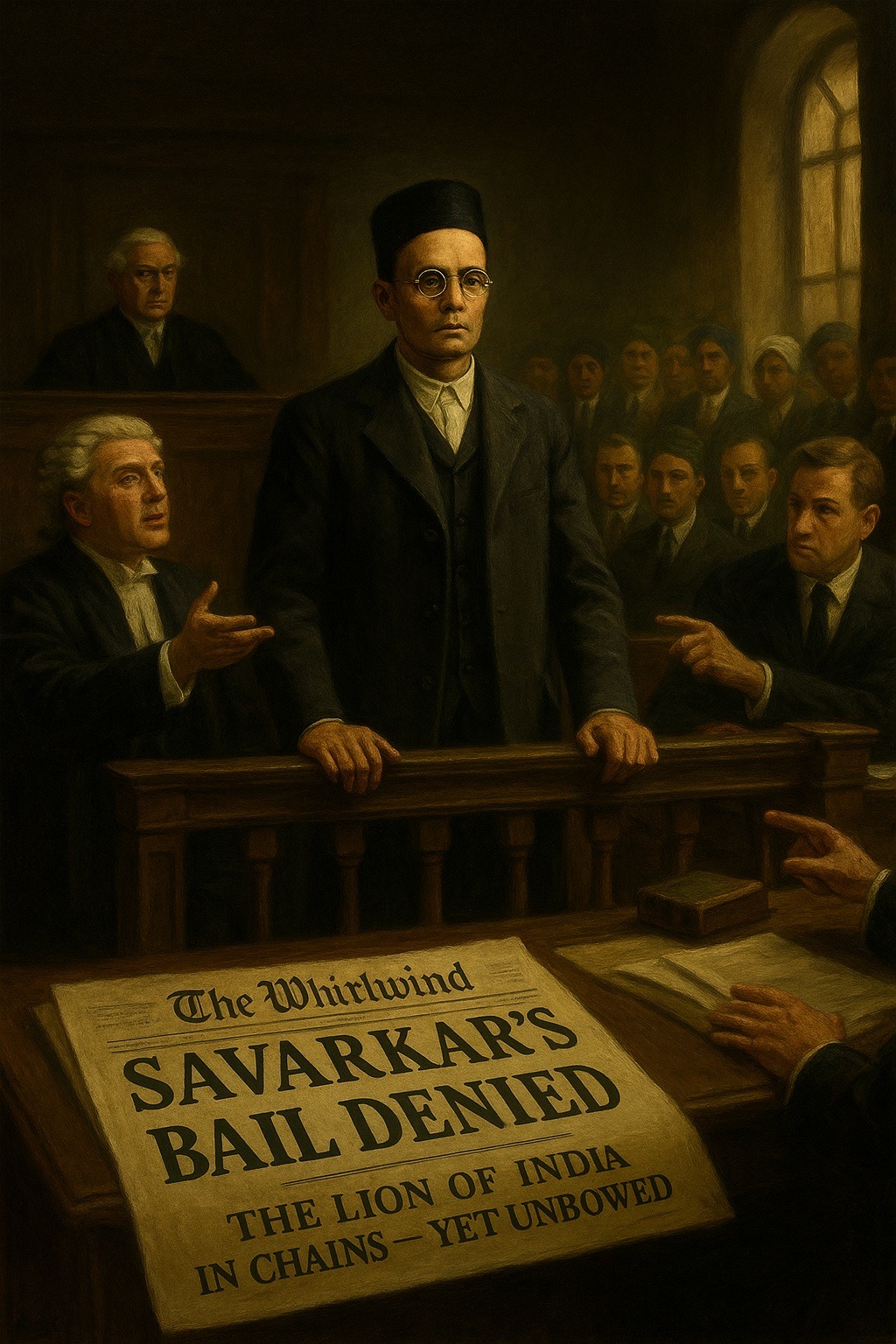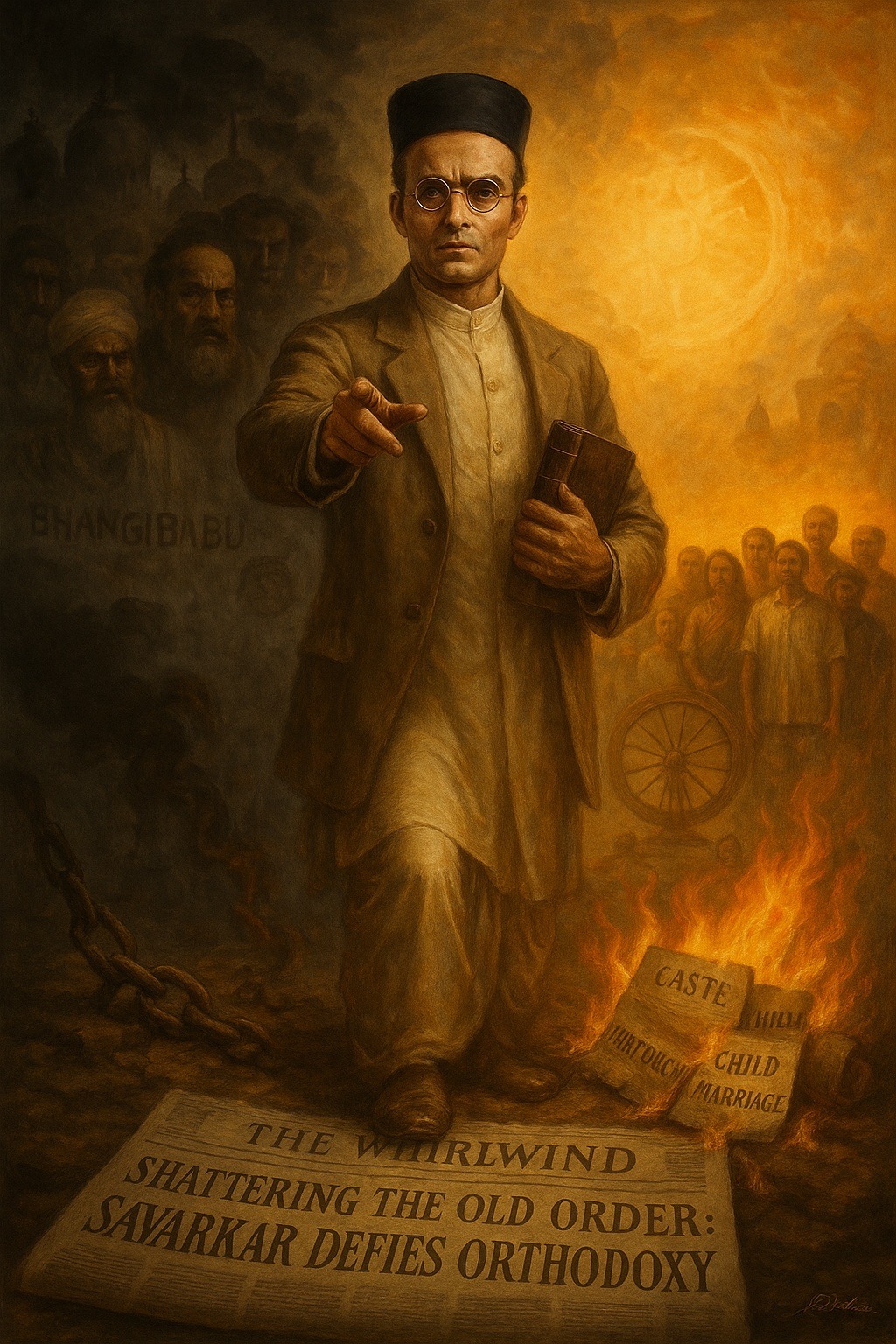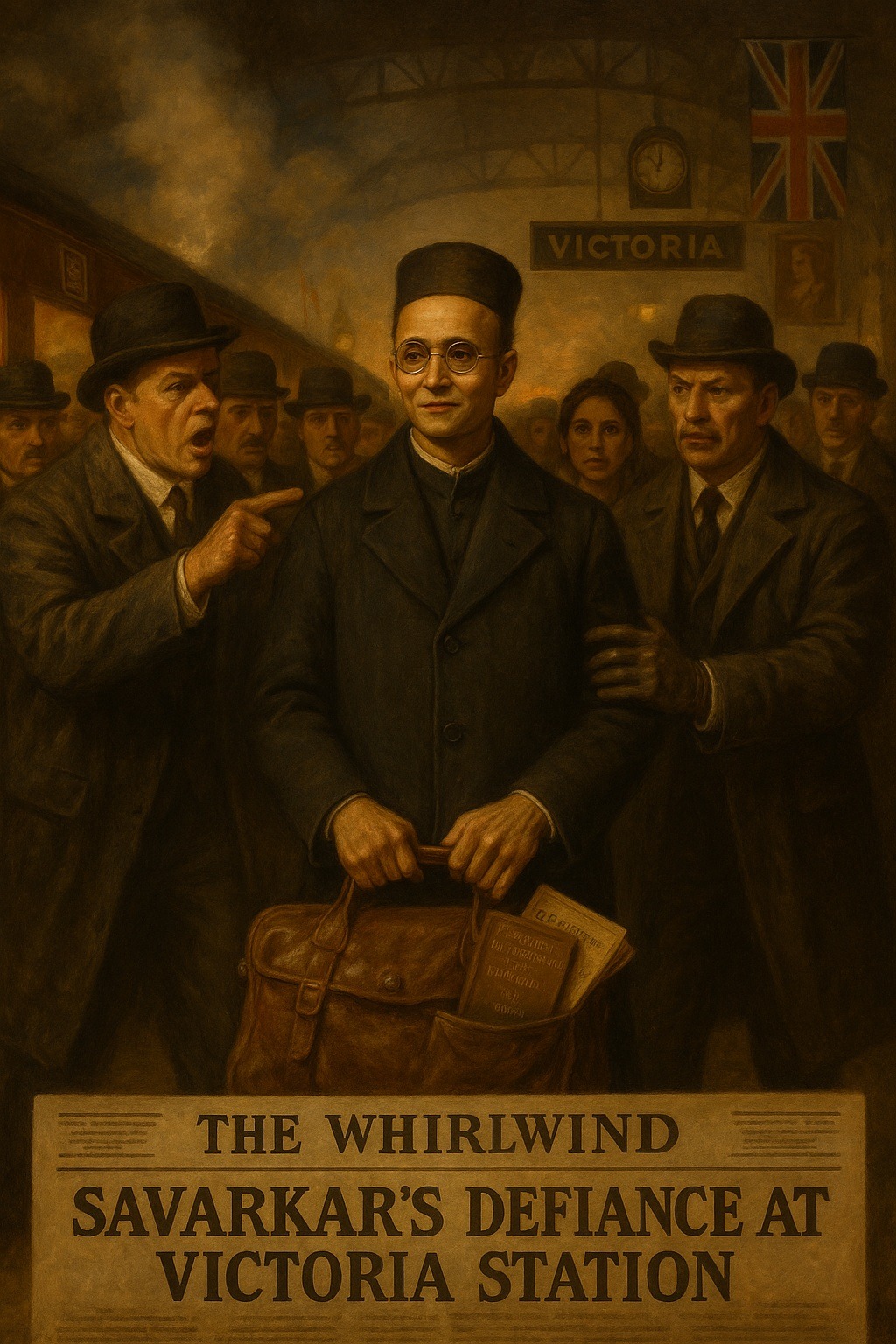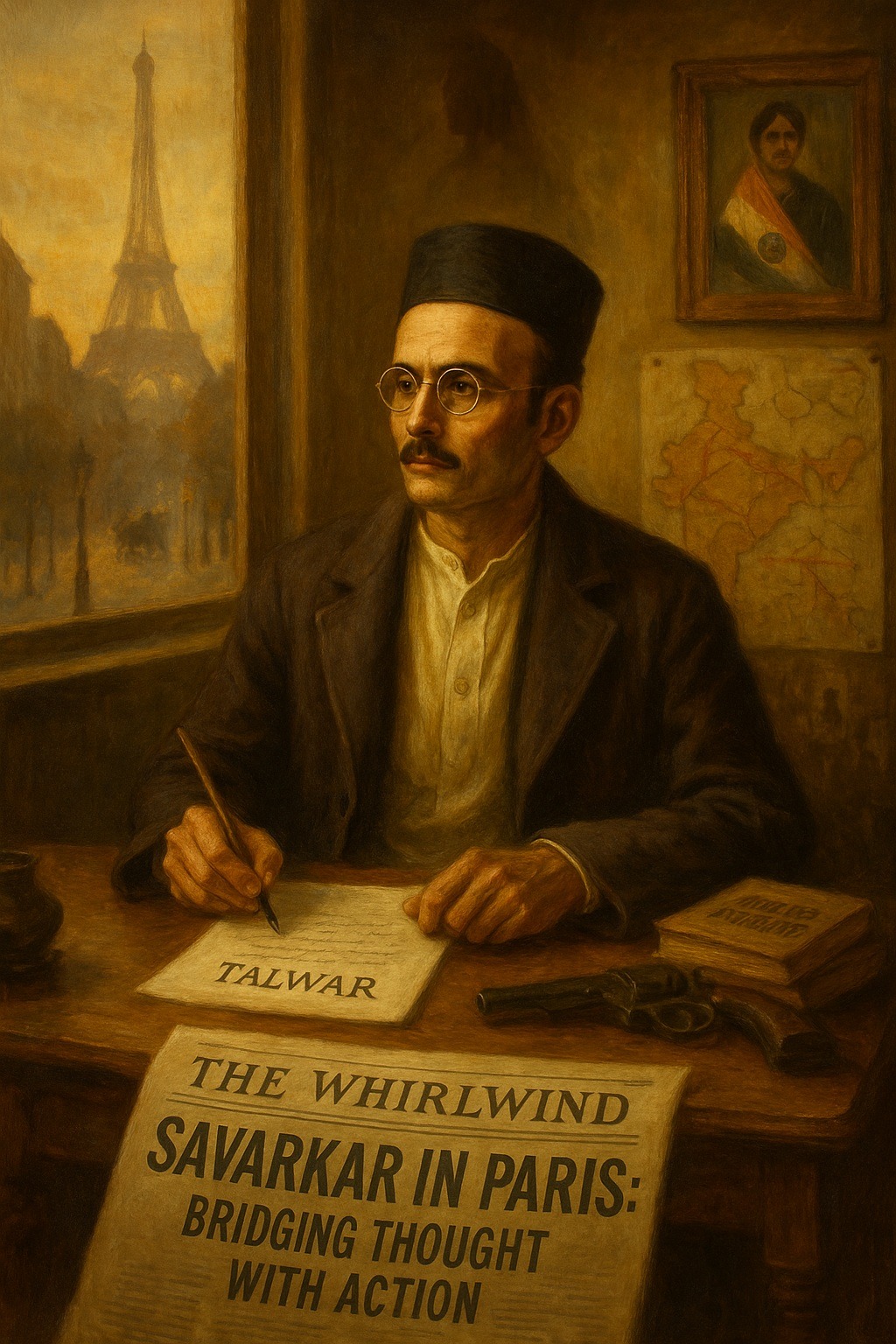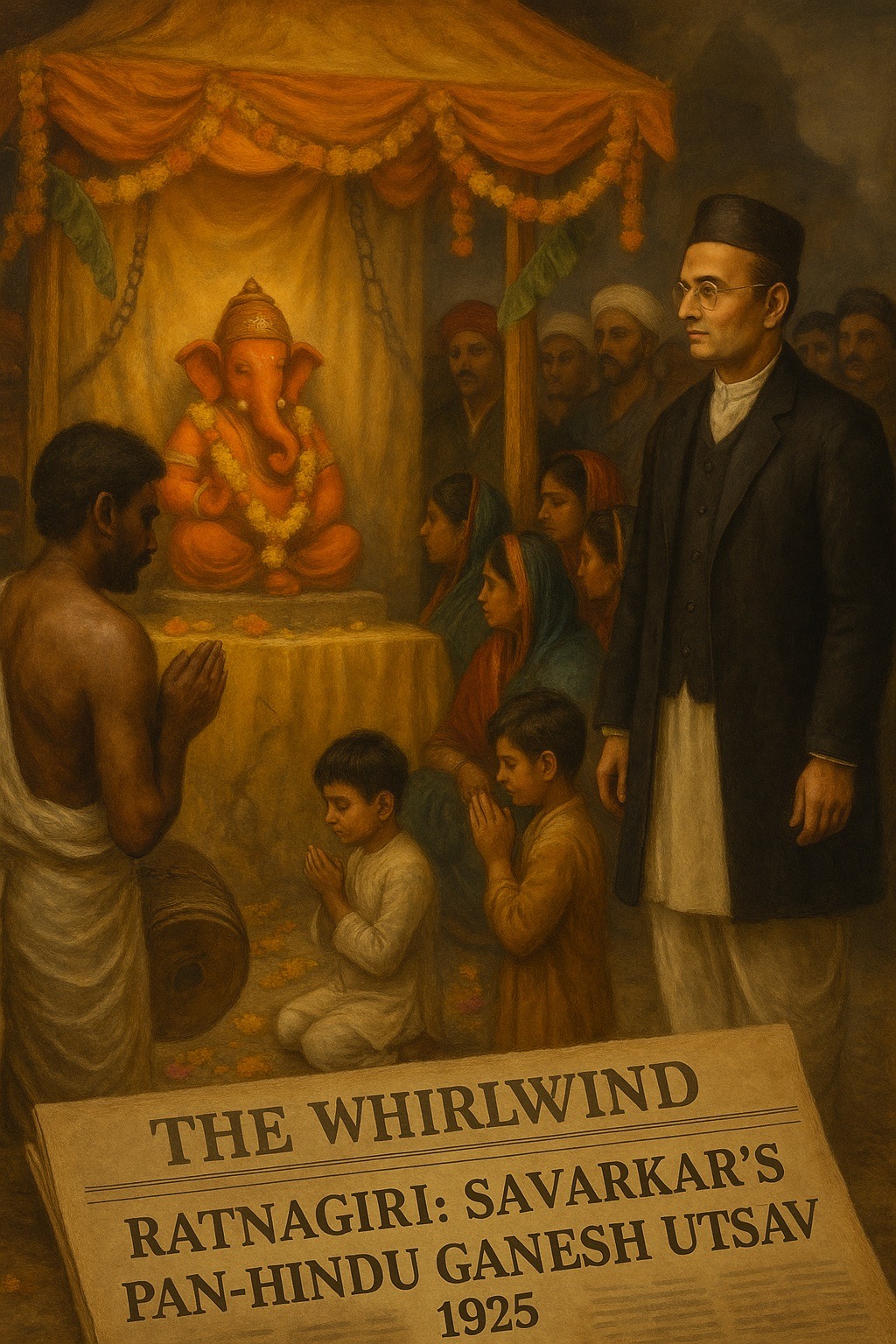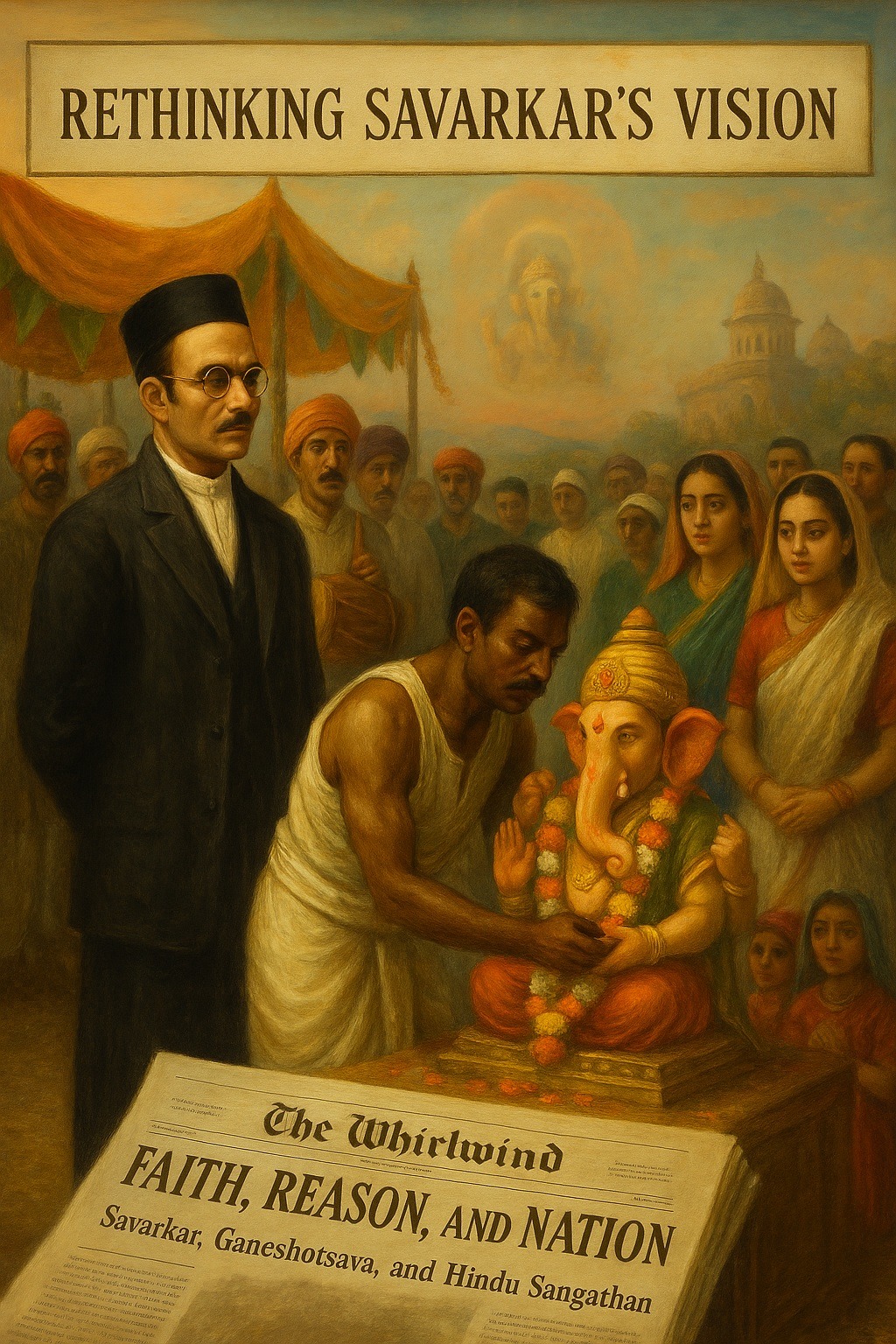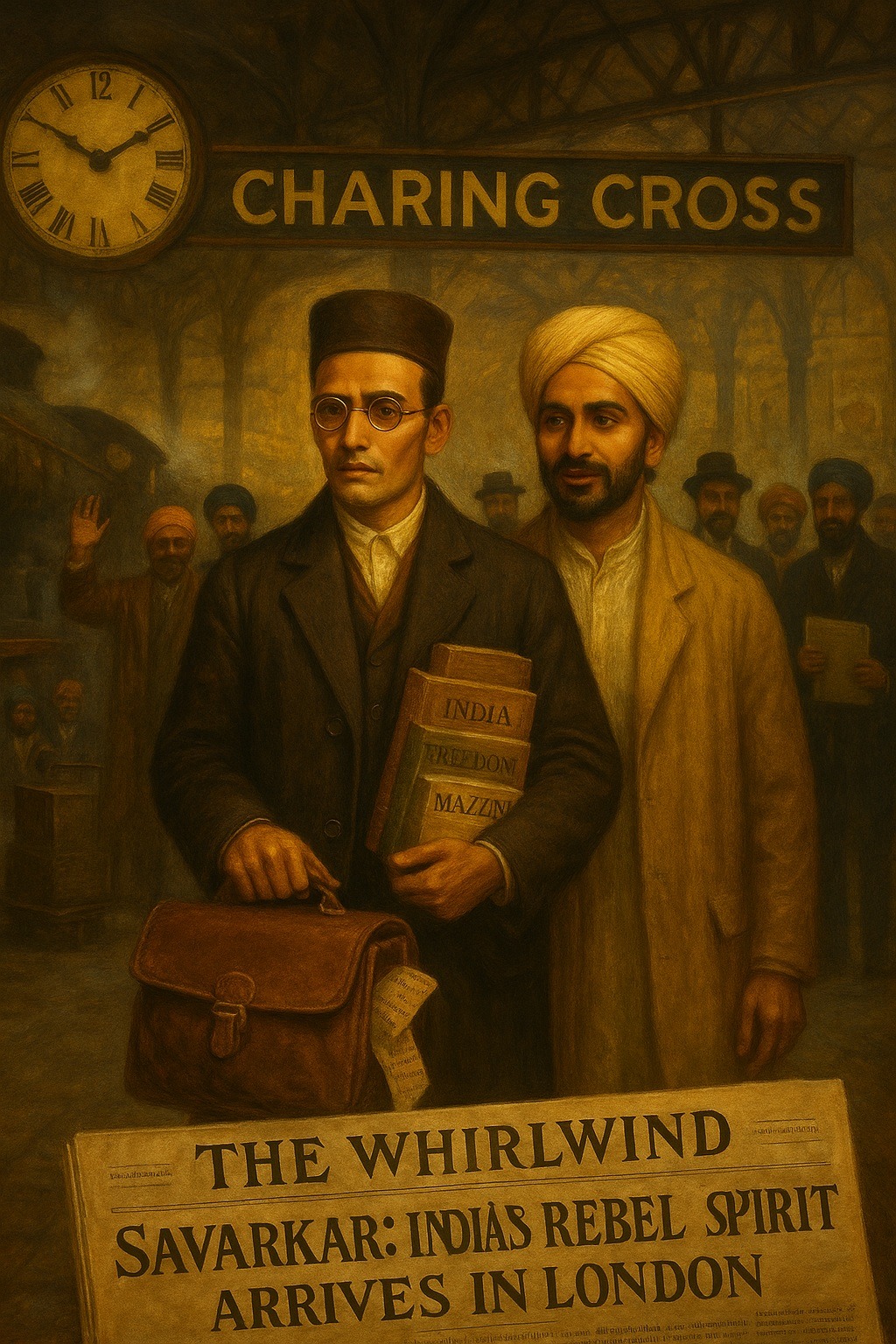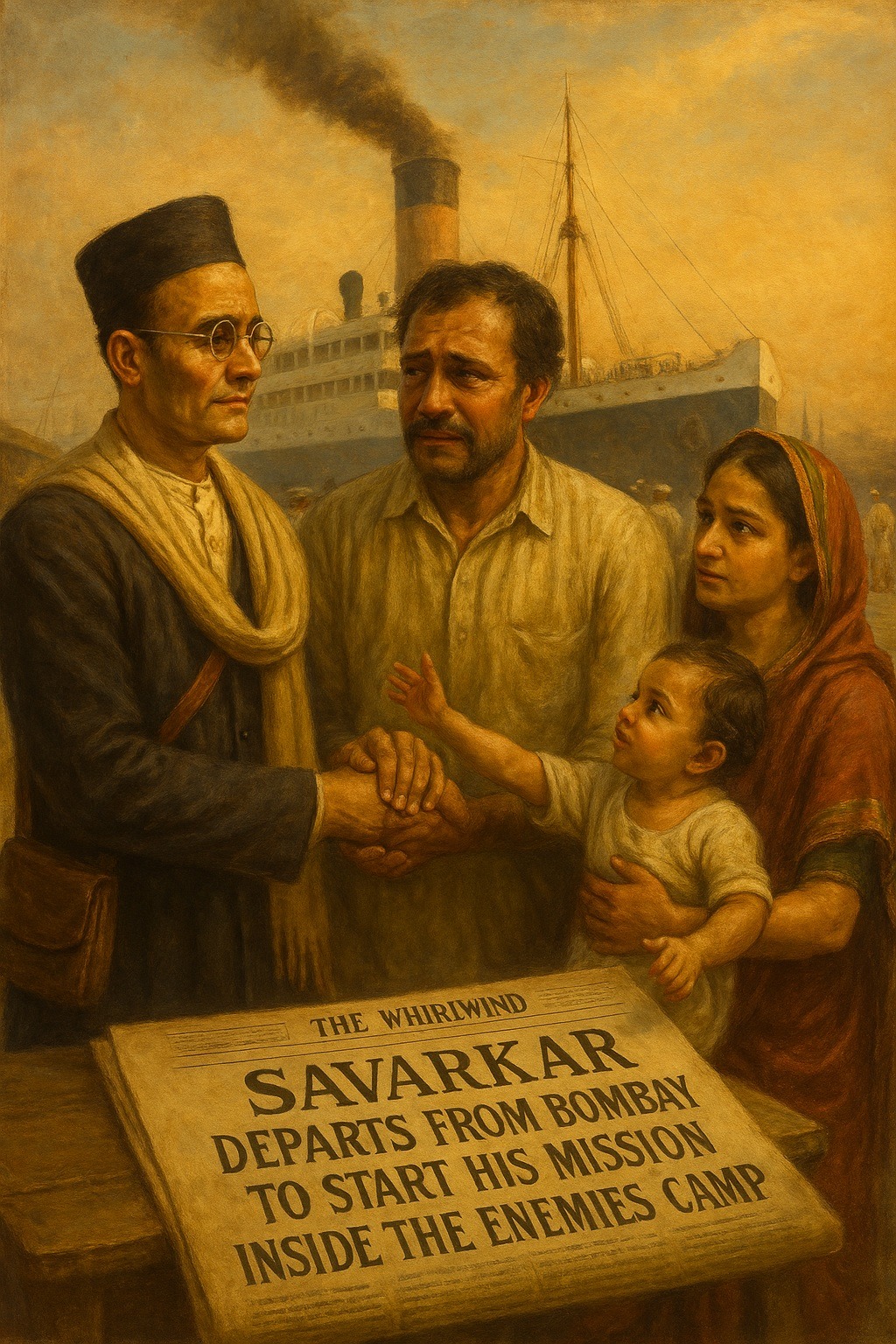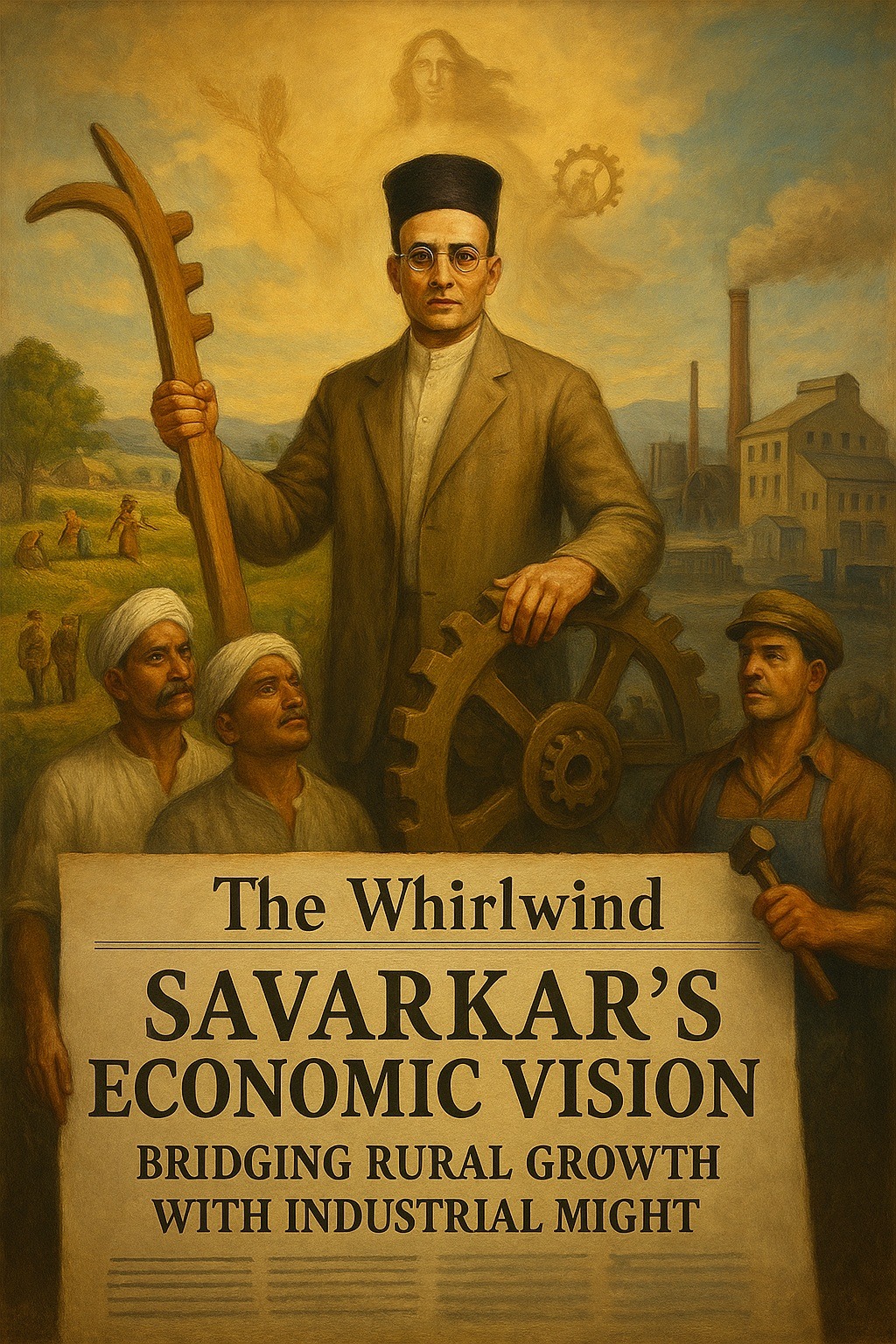Tag: PoliticalStruggle
-
The dramatic London chapter of Vinayak Damodar (Veer) Savarkar’s life reached a decisive turning point in March 1910. On Sunday, 13 March 1910, Savarkar was arrested at Victoria Station while waiting for a train. For months, the British authorities had been keeping him under close surveillance, suspecting his involvement in revolutionary networks that had sprung…
-
On Sunday, 13 March 1910, Vinayak Damodar (Veer) Savarkar’s revolutionary mission in Europe met a dramatic turning point. That evening, as he arrived by train from Newhaven (via Paris) at Victoria Station in London, he was arrested by officers of the Metropolitan Police under charges of sedition, conspiracy, and waging war against the British Crown.…
-
Vinayak Damodar (Veer) Savarkar’s time in Paris (1909–1910) marked a decisive chapter in his revolutionary journey. It was a period of exile, reflection, and renewed determination, shaped by both personal hardship and the escalating storm of the Indian independence struggle. A Period of Strain and Loss The latter part of 1909 was fraught with turmoil…
-
On 9 June 1906, Vinayak Damodar (Veer) Savarkar departed Bombay aboard the S.S. Persia, embarking on a voyage that would decisively shape both his intellectual trajectory and his role in the Indian nationalist movement. While framed outwardly as a student’s pursuit of legal studies in England, the journey was imbued with deeper significance: it marked…
-
Savarkar’s Coding of Hindutva; Metacode Rashtra, Part 5; Code Territorium (4/6); Codeelement Des, Indivisibility of the Territory (1/3) When Vinayak Damodar (Veer) Savarkar spoke of nationalism, he did not imagine it in narrow or regional terms. Instead, he envisioned a pan-Indian nationalism that stretched across the entire subcontinent—bounded naturally by the Himalayas in the north…
-
Economic Dimension of Hindutva, Part 7; Savarkar’s Economic Principles (3/13) India’s economic foundation has long been rooted in agriculture, with rural communities playing a pivotal role in the nation’s progress. Vinayak Damodar (Veer) Savarkar, a visionary thinker and nationalist, recognized the indispensable contribution of the peasantry and the working class. He believed that empowering these…

